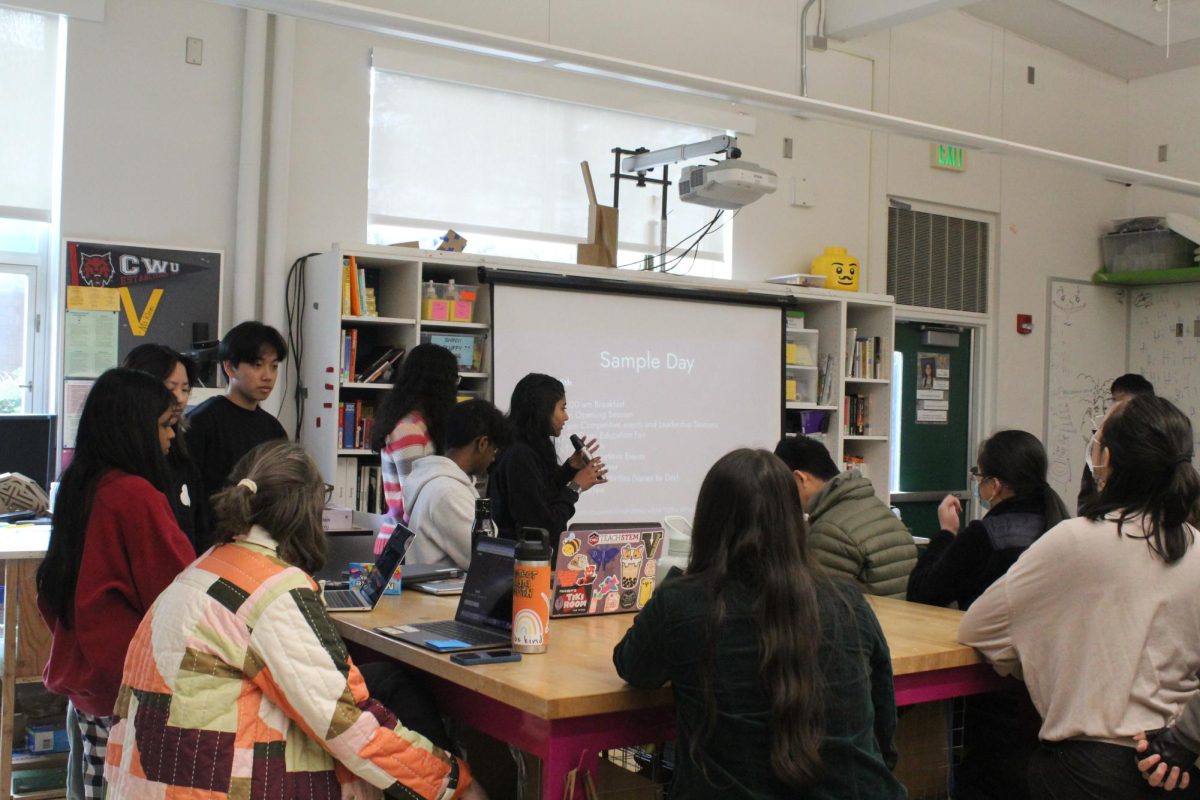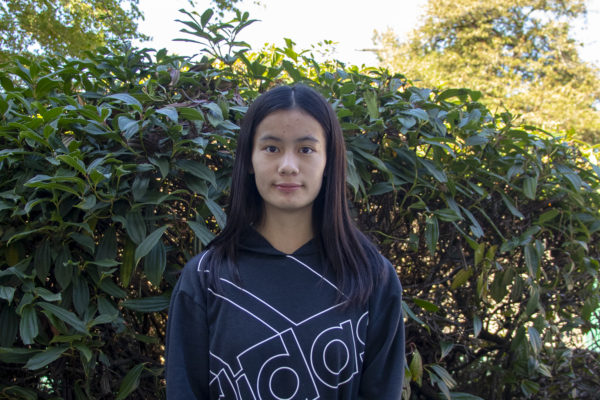From stressing over competitions to sacrificing sleep to prepare, students in competitive clubs explore their interests and potential careers. Out of 40 clubs at Inglemoor, the most popular ones are based on competition. With over 200 members, DECA is Inglemoor’s largest competitive club. It centers on business and has a long history of competitive success at the regional, state and international level. Clubs such as Technology Student Association, Health Occupations Students of America, Future Business Leaders of America, Mock Trial and Model United Nations also provide students with an opportunity to compete at different levels.
Senior Shirin Choi (she/her) is the co-president of FBLA and a DECA competitor. She usually starts preparing for each competition a few months before, and she increases the workload in the weeks leading up to the competition.
“I think a lot of successful people in the clubs, normally they’re very organized and ambitious,” Choi said. “When they’re preparing for their events, they start early, and they prepare ahead.”
On top of schoolwork and other extracurriculars, members of competitive clubs must spend hours creating products, preparing presentations and rehearsing for competitions.
For example, students participating in certain DECA events must write detailed reports of up to 20 pages about various business-related topics. Students must then present their work to judges, condensing 20 pages worth of content into a 10-15 minute presentation.
With competitive events as time-consuming as this one, participating students said they can be quite stressed.
“I feel as of right now, there’s nothing much I can really do regarding my stress because I can’t really just get rid of a club,” senior Irin Robinston (she/her) said. “I think what really helps me is I always try to think ahead, like ‘In two weeks, you’ll be done with this.’ So that’s kind of how I get myself through a lot of stuff.”
Junior Anna Marroquin (she/her), who has won first place at both the regional and state level for DECA, said she sacrificed her sleep to prepare for competitions. While preparing for competitions can be exhausting, competitors said that they picked up valuable skills along the way.
“I’ve gotten a lot better at research and writing because of MUN, as well as just working with a big group of people that I’ve never really met before and collaborating even if we don’t already have a relationship,” freshman Langley Foster (she/her) said.
Aside from learning and developing important skills, some students join clubs to enhance their college applications with awards. Competitions are usually held at the regional, state and international level. Students who do well at the regional level qualify for the state competition, and so on. However, each level of competition becomes progressively harder, meaning that an award at the state or national level is considered a much higher accomplishment than an award at the regional level.
“I think it only affects me if I do crazy good at the international level because I don’t think a college is gonna care if I got — I don’t know, third or sixth at regionals,” sophomore Joshua Zou (he/him) said.
Senior Bennett Ye (he/him), the president of HOSA and the director of competition for DECA, has won several awards, including at the international level. Looking back on his club experiences, he recalls fond memories from competition field trips.
“The first time we went to HOSA ILC [International Leadership Conference] was back in 2021 when COVID was still a thing. We had this weird experience where our advisor got COVID, so we kind of got all trapped inside, we all got quarantined, but we ordered something like 40 Chicken McNuggets at 2 a.m. in the morning,” Ye said. “We were just eating Chicken McNuggets and talking about basically everything — obviously some school related stuff, we talked about Taylor Swift at some point, K-pop at another point. It was a really interesting, really fun experience.”
While competitive clubs can bring merit to award-seeking students and help members develop skills and create new memories, Robinston said it is important to consider personal interests when joining a club.
“I’ve never ever done a club or taken up something because ‘Oh, this will look good on my college applications,’” Robinston said. “It was always just because I really liked this club, and I really wanted to do it. Advice to people is don’t do stuff to put it on your app. Just do it because you like it.”











